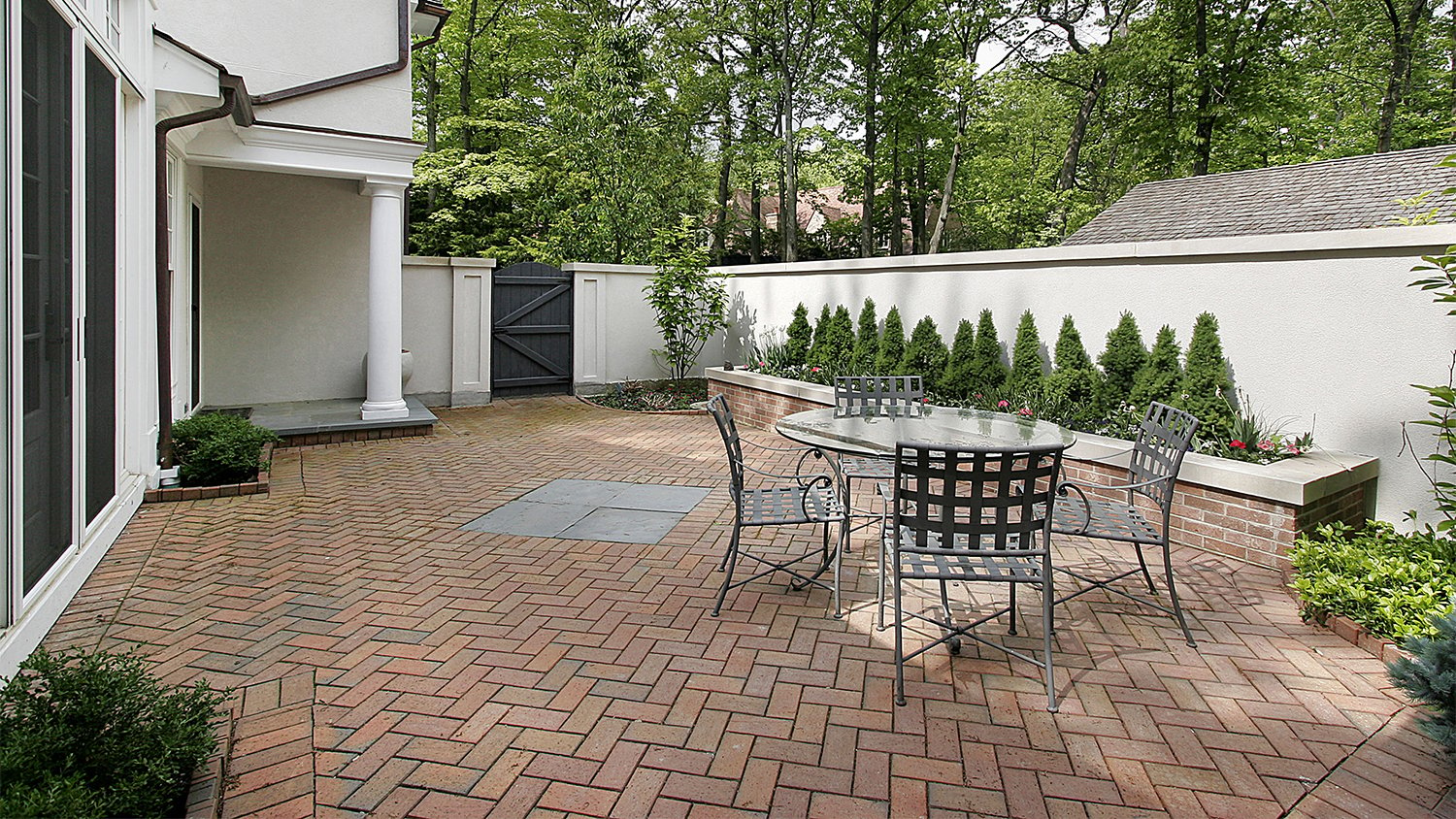What Are Interlocking Pavers?
Interlocking pavers might be the perfect fit for your landscape


Interlocking pavers can withstand up to 12,000 pounds per square inch.
Interlocking pavers are an excellent solution for driveways, patios, and other outdoor areas.
They are easy to install.
You can purchase pavers in concrete, brick, or natural stone.
For a new patio, walkway, driveway, or other outdoor areas, interlocking pavers are hard to beat. They are extremely durable—withstanding up to 12,000 psi (pounds per square inch)—easy to maintain, and come in a variety of colors, shapes, and styles to suit any aesthetic preferences. Better yet, interlocking pavers fit together easily like puzzle pieces, making them DIY friendly. Read on to learn everything you need to know about interlocking pavers and how to get the most out of them to boost your curb appeal.
What Are Interlocking Pavers?
Interlocking pavers are made from natural or manufactured stone and are used to design a solid surface for many outdoor areas, such as patios, driveways, or walkways. They connect together like puzzle pieces, instead of being poured into an area like concrete, and typically sit on top of a base layer of sand, gravel, or concrete for added stability.
Unlike other outdoor flooring options, such as asphalt or concrete, interlocking pavers are easy to repair, as you can simply remove one paver and swap it out for a new one. Typically, when concrete becomes damaged, a professional must cut out the damaged area with a concrete-cutting saw and pour new concrete, a lengthy and costly process.
Types of Interlocking Pavers

There are three main types of interlocking pavers.
Concrete
The least expensive of the three, concrete pavers come in a wide range of shapes and colors. They are very durable, and therefore suitable for driveways and walkways, but they need resealing to retain their color. Other than that, maintenance is simple.
Natural Stone
Natural stone pavers are made from elegant granite, limestone, flagstone, cobblestone, travertine, or fieldstone, and are pricier than other options. Because they aren’t dyed like brick or concrete pavers, the color of natural stone doesn’t fade, but they aren’t as dense or durable as the other materials, so they aren’t suited for driveways.
Brick
Brick pavers are typically rectangular-shaped and made from baked red clay. They can be laid in various directions for different patterns, and are very strong and suitable for driveways and walkways. Over time, they can form efflorescence, a chalky substance that comes from the salt inside the brick; pressure wash them regularly to keep efflorescence at bay.
The average cost for pavers, including installation, is between $8 and $50 per square foot, but that varies based on material. For the most accurate quote, contact a paver installation contractor near you.
How Do Interlocking Pavers Work?
Even though interlocking pavers connect like puzzle pieces, they don’t fit fully flush against one another in the same way. Instead, a small gap lives between each paver in which a joint material, such as sand, is placed. The space and sand create friction in the paver joints, which helps disperse weight over a larger area, allowing pavers to withstand heavy loads like vehicles. When you walk on one or two pavers, you distribute your weight over six to seven pavers.
To keep your new paver patio or walkway looking new, wash it with water regularly and sweep it to move dust, leaves, and other debris away. Removing stains will vary based on the type of material you installed, but typically a gentle cleaning solution and pressure washing do the trick.





- Deciding Between Concrete, Stone, or Brick Pavers? Pros, Cons, and Cost Compared
- Pavers vs. Concrete: Which to Use for Your Home Project
- How to Lay Pavers Like a Pro and Create Your Dream Outdoor Space
- What Are Pavers and How Do They Help Build an Outdoor Paradise?
- The Ultimate Guide to Pool Deck Pavers
- Installing Pavers? Here’s What You Need to Know About Drainage
- Pros and Cons of Tumbled Pavers
- 31 Paver Patio Ideas to Turn Your Backyard Into a Showpiece Oasis
- What Is Permeable Paving? Everything You Need to Know
- 6 Stamped Concrete Designs for a Beautiful Finish










